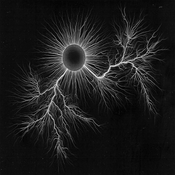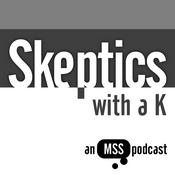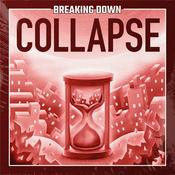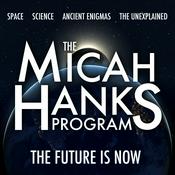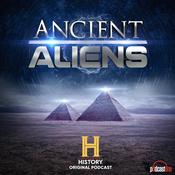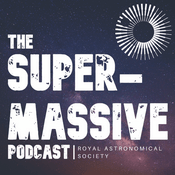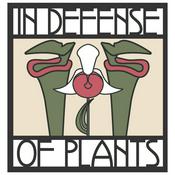99 episodes
- Often in the history of science, myths overrun scientific findings and take hold with such force that they are difficult or nearly impossible to dislodge from public understanding. Perhaps no example of this phenomenon is more pronounced than that of the societal collapse of Easter Island, also known as Rapa Nui. With us to unravel the myth from the science is Mike Pitts. Mike is a writer and broadcaster (a frequent voice on BBC radio), archaeologist (directing excavations at Stonehenge), and one-time museum curator. He has written for The Times, Telegraph, Sunday Times, Observer, and Guardian, and many magazines including New Scientist, Archaeology, and BBC History. He edited British Archaeology magazine for 20 years and has written books on topics ranging from the discovery of Richard III's grave to How to Build Stonehenge. His original research has been published in peer-reviewed journals such as Nature, World Archaeology, and Antiquity. He is a Fellow of the Society of Antiquaries.
- The Science History Podcast, now in its 9th year, has spanned Trump's first term in office, four years of the Biden Administration, and a year of the second Trump Administration, not to mention a global pandemic, horrific wars around the world, and the emergence of AI. So now seems like the perfect moment for some levity. The master of musical satire, Tom Lehrer, passed away in 2025. Here is my celebration of Lehrer's ability to make us laugh during the even more tumultuous times of the Civil Rights era, the Vietnam War, the Cold War, and political assassinations and violent polarization.
- Today's episode is a discussion on the history of PFAS, or forever chemicals, including their accidental development, incorporation into commercial products, concerns about health effects, and environmental contamination and remediation. My guest is Sharon Udasin. Sharon is a Colorado-based environmental journalist and author of Poisoning the Well: How Forever Chemicals Contaminated America. She was a Ted Scripps Fellow in Environmental Journalism at the University of Colorado Boulder in 2019-2020 and received a SEAL Environmental Journalism Award in 2023. A graduate of the University of Pennsylvania and Columbia Journalism School, she has reported for numerous publications over the past two decades — most recently for The Hill.
- The weather has always been a critical element of the human experience - deadly during storms and droughts, sustaining when aligned with the harvest schedule, beautiful and frightening, and integrated into the myths and religions of all societies. How did a scientific understanding of the weather come about? Here to guide us on this question is Simon Winchester. Simon's articles and approximately 30 books range in topic from travel writing to politics, geography, biography, and science history. Simon is best known for his books The Professor and the Madman, The Men Who United the States, The Map That Changed the World, The Man Who Loved China, A Crack in the Edge of the World, and Krakatoa, all of which were New York Times bestsellers. In 2006, Simon was made an officer of the Order of the British Empire by Her Majesty Queen Elizabeth the II. Today we discuss Simon's new book about the weather entitled, The Breath of the Gods, published by HarperCollins.
- In Episodes 10 and 11 of the Science History Podcast, I interviewed James Muller on the role that Winston Churchill played in the unparalleled advancement of science and technology during the first half of the 20th Century, particularly as it related to the two world wars. In today's episode, Jim returns to discuss Churchill and an earlier war fought in the Sudan at the end of the 19th Century. Jim is a Professor Emeritus at the University of Alaska Anchorage and one of the world's foremost authorities on Churchill. For more than a quarter century, Jim has chaired the Board of Academic Advisers of the International Churchill Society. He is the author of many works on Churchill, including edited and scholarly reprintings of Churchill's interwar books Thoughts and Adventures and Great Contemporaries. Today we discuss his remarkable new edition of the two-volume Churchill book The River War: An Historical Account of the Reconquest of the Soudan, published in 2021 by St. Augustine's Press, which won the Churchill Literary Award from the International Churchill Society. St. Augustine's Press also published Jim's 2024 scholarly edition of Churchill's book My Early Life, A Roving Commission.
More Science podcasts
Trending Science podcasts
About Science History Podcast
Monthly interviews on important moments in the history of science.
Podcast websiteListen to Science History Podcast, Hidden Brain and many other podcasts from around the world with the radio.net app

Get the free radio.net app
- Stations and podcasts to bookmark
- Stream via Wi-Fi or Bluetooth
- Supports Carplay & Android Auto
- Many other app features
Get the free radio.net app
- Stations and podcasts to bookmark
- Stream via Wi-Fi or Bluetooth
- Supports Carplay & Android Auto
- Many other app features


Science History Podcast
Scan code,
download the app,
start listening.
download the app,
start listening.
